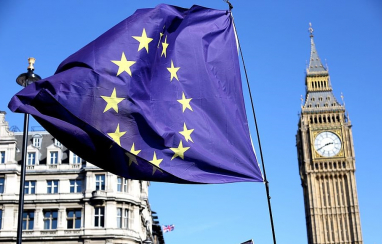- Air Jordan Release Dates 2023 , Drip Bar Detroit , AIR Spizike JORDAN
- nike air jordan 1 outlet
- 001 Air Jordan 1 Zoom Comfort League of Legends World Championship 2020 For Sale3 Retro Cap And Gow OG Voodoo DZ7292 , new year deals air jordan 13 low white metallic silverpure platinum - 200 Release Date - Zion Williamson x DD1453 - SBD
- Air Jordan 1 Outlet Store
- nike sb varsity red dunks black and blue white
- on feet air jordan 1 low chicago
- new air jordan 1 high og osb dian blue chill white cd0463 401
- Air Jordan 1 University Blue 555088 134 Release Date Price 4
- air jordan 1 retro high og university blue 555088 134
- Usher Air Jordan 11 Gold Sample
- Home
- News and analysis
- Info hubs
- Events
- Video
- Case Studies
- About us
- Magazine
- Advertising
Produced for the industry by the Association for Consultancy and Engineering
Comment
How will the election result affect the Brexit negotiations?

Many of the concerns being expressed following the general election result relate to the upcoming Brexit negotiations, Natasha Levanti takes a look at what impact the result could have on the negotiations.
With Brexit negotiations set to occur in a matter of days, it is not surprising that many of the concerns following the election result are about what will occur at the negotiation tables, when they will occur, and occasionally if they will occur.
From within European Union, it had been expressed prior to the general election that it was important that the UK prime minister be a strong leader with a stable support in place to have a steady negotiation line, without shifts in priority throughout the process, so as to finish by March 2019. While they did not specifically express any desire for one candidate over another, it was not expected just days prior to the start of the negotiation that the UK parliament would be hung.
Yet the Brexit clock will keep counting down, no matter whether the UK has instability in its domestic politics or if the UK even has a set team and mandate.
Even if negotiations are delayed due to UK domestic politics – who are we facing across the negotiation table?
Led by Michel Barnier, who was appointed by the Commission as the lead EU negotiator, the negotiation team is composed of 29 key individuals, seen in the organogram set out in February.
These negotiators are organised for the next 24 months into three separate task force style groupings - Trade and External Relations, the Budget Spending Commitments and Programmes, and the Internal Market, Sectors and Cross-Cutting Regulation.
Of these individuals, the majority are veteran political negotiators, with the majority of Barnier’s team having worked with him or each other previously. While the nationalities are myriad, the most prominent nationality on the team of 29 is French, though it should be noted that they will be negotiating on behalf of the EU as a whole.
From the EU side, these 29 individuals will continue to prepare for Brexit releasing further reports to the public on the UK withdrawal, putting pressure on the UK to sort out what will be the government priorities on the UK side of the negotiation table.
Could UK negotiations to leave the EU be delayed?
If it takes time to settle down the political situation domestically in the UK, it is important to note that the timeclock for withdraw will not be halted due to any domestic political situations. While the specific dates of the two teams facing off across the table may change, the negotiations for the withdrawal (not including the future trade situation) must be finalised by March 2019.
In the case that the negotiations are not finalised by March 2019, the UK will no longer be a member of the EU, unless the EU unanimously decides to extend the negotiation period. A unanimous decision that would likely be difficult to wrangle.
It was heavily reported on social media that one of the reasons that Theresa May did not want to step down as prime minister was because she does not want the EU to have an excuse to delay the negotiations. However, coinciding with the timing of such reports, Donald Tusk, president of the European Council has on social media said: “We don’t know when Brexit talks start. We know when they must end. Do your best to avoid a ‘no deal’ as result of ‘no negotiation’."
Could Article 50 be withdrawn?
Some are talking today about whether or not the Article 50 letter can be withdrawn. It is a bit of a grey area as this article has never before been invoked, let alone withdrawn.
Technically, from a legal and political perspective it could be done, but it would not be easy, relying fully on the need of ‘intent’ for withdrawal.
As Stefan Enchelmaier, professor of European and Comparative Law at Oxford University, said in December 2016: “If you look at Article 50, first you have the decision to withdraw, then you have the intention to withdraw. No withdrawal without notification but the other way round, no withdrawal without the intention to withdraw.” This was reinforced by Kenneth Armstrong, professor of European Law at Cambridge University, who said that this was the “dominant legal opinion” on the matter. Therefore, it could be argued legally that there is a way to stop the withdrawal process, though this is highly unlikely.
The Brexit timeline and process was first established by the head of state or government of the 27 member states on 15 December 2016 - available here.





